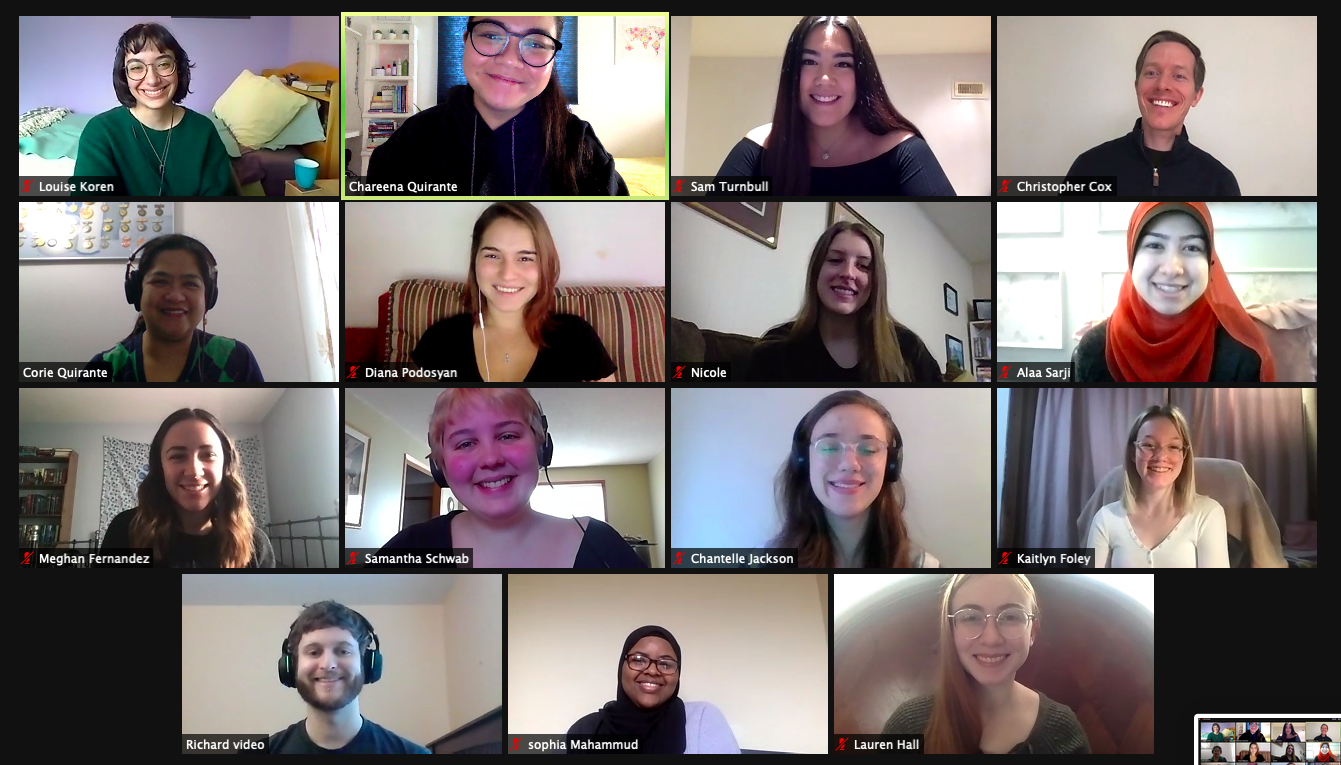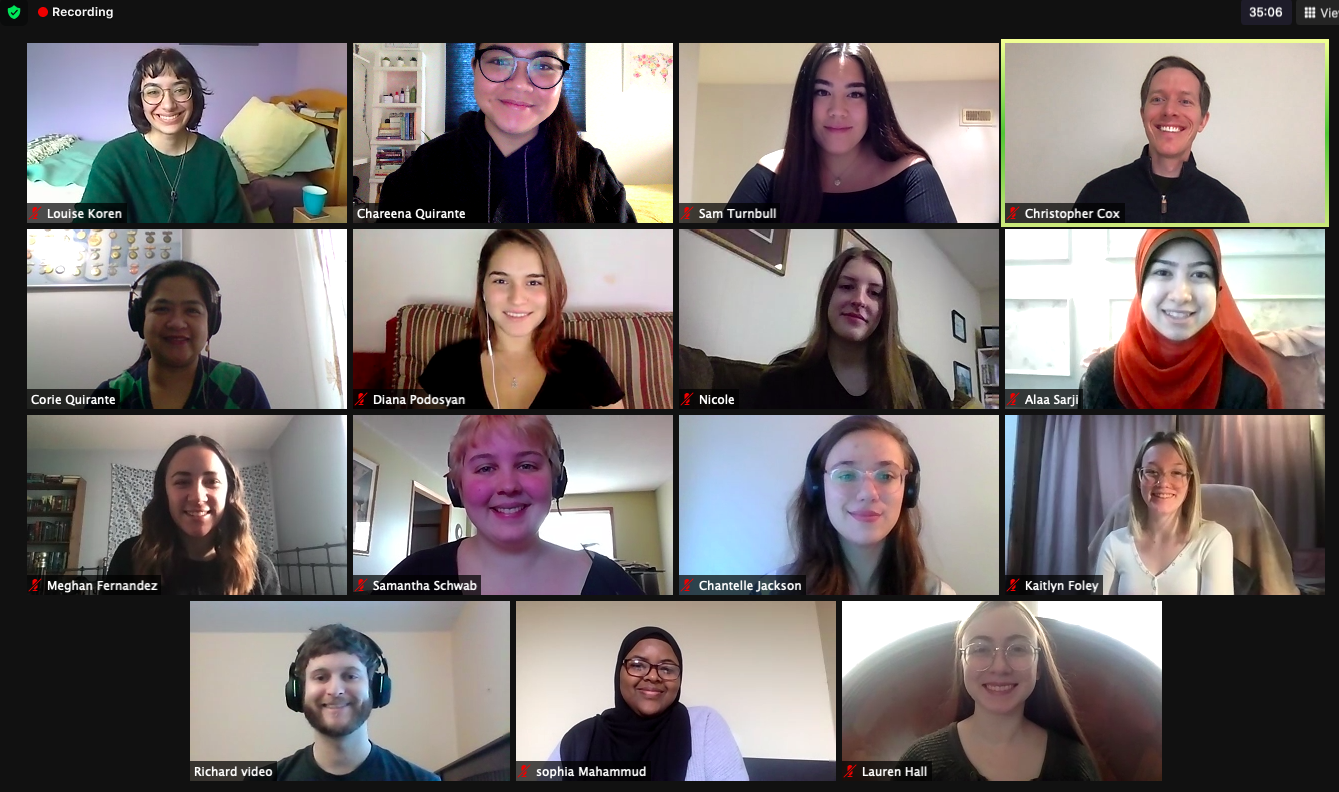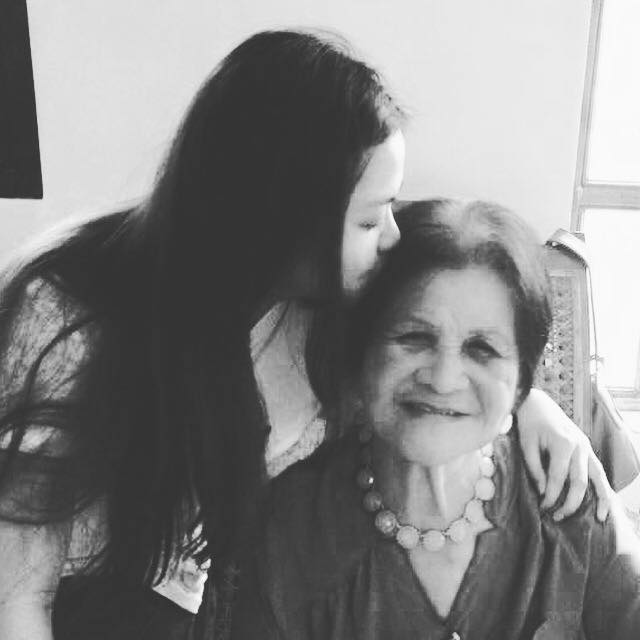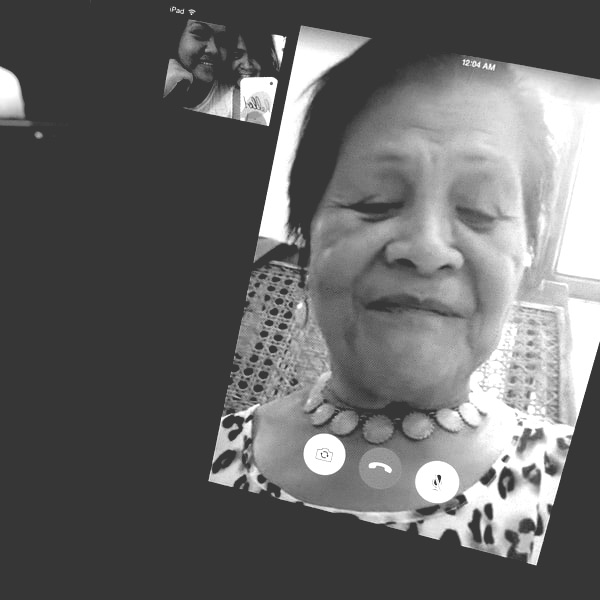|
Earlier this month, I had the chance to join my first ever international conference, the Approaches to Migration, Identity, and Language (AMLI) 2021 hosted by the University of Sussex. It was an incredible opportunity to not only get to know some of the recent work being done on the subject, but also to connect with brilliant scholars and researchers in the field. The plenary presented on the last day by Dr. Ana Deumert (titled "What if there had never been settlers?") really spoke to me, when she said, "The past is a future priority - The past was once a present, the present will become another past, and the future will become another present." Ana approaches coloniality as a disruptive force that affects us all and must be deconstructed. In the future, I hope to read more work on pre-colonial Philippines and hopefully even write some papers on it. Before we head into the future, we must first know who we were as a people before colonial forces shaped our identities, and ways of living and thinking. To make scholarship more accessible, all the presentations for AMLI 2021 have been made public here: amli2021.org/panels/language-ideology-and-migration/ My work is the first one on Language Ideology in the link above (more amazing work below mine as well, including Carleton University's Rachelle Vessey's research on multilingual nannies), but if you click on "Panels" you'll see the research done on other topics. There are also several papers done on the Philippines, which I was very pleased about. The discussions were also a great way of getting and giving feedback on each other's work. My paper for AMLI 2021 discusses the results of a workshop I did with several Filipino-Canadians who attended the Pinoys on Parliament's 2021 National Youth Leadership Conference (see workshop description here: pinoysonparliament.com/the-language-baggage-unpacking-language-ideologies-among-young-filipino-canadians/) where we talked about their language experiences and ideas about the languages they carry as multilingual migrants. A huge thank you to all the participants, Dr. Sid Sudiacal for helping facilitate the group discussions, POP21 leaders and organizers, as well as Philippine Centre Canada for sponsoring the event. Finally, I am hoping to see Yogad on the podcasting world very soon - I was invited for an interview by the wonderful LeDonna (also a multilingual herself) of Discovering Language (see www.discoveringlanguage.com/). Her podcast, also called Discovering Language on Spotify, features lesser known languages. I hope to share the episode on Yogad with you all once it becomes available later in the year. That's all for now, and thank you for your continuous support! Mabbalat!
4 Comments
Last week, I got curious about the online presence of Yogad. I thought it would be a good idea to compile them all here and share with you some of the discoveries I found. A couple of things that amused me while browsing are (1) I laughed so hard at Yogad jokes and (2) some creators put "Yogad" or "Yogad kan" in their usernames or titles even if the content sometimes had nothing to do with Yogad. They simply wanted to identify with being Yogad, and I thought that was really interesting - an indication of pride in our tribe and language. There was really something grounding about it, as if a silent resistance that says, "We exist. We're here."
Language Resources on Yogad
Yogad Cultural History
Gospel Recordings in Yogad
Yogad in the News
Yogad Facebook Communities
If you know of any other thriving Yogad sites, please let me know and I'll add them here. I credit all creators of the sites mentioned above. Stay rooted, wherever this finds you. “/baˈgat/ you can eat, /ˈbagːat/ you cannot”: A Phonological Sketch of Yogad Presentation for Linguistics 2007: Phonetics Carleton University Ottawa, Canada January 22, 2021 Yogad Kan: Creating Spaces for a Tribal Language Presentation for ALDS 2704: Bilingualism Carleton University Ottawa, Canada January 28, 2021 What better way to start the year than to be invited to present some of the developments in Yogad research? I would like to thank Dr. Christie Brien for this opportunity to share some of the work related to Yogad, first in her Phonetics class and second for her Bilingualism class in Carleton University. Sharing these videos with you all, and may we keep creating spaces for our heritage languages!
Correction: The Yogad First Primer was published in 1956, not in 1957 (see Related Research). The unthinkable has happened: Last Fall, a group of student linguists from Carleton University here in Canada did some work on documenting Yogad for a Linguistic Field Methods class! Although I am of Yogad heritage and a receptive user of the language, I started the course with practically no experience in documenting a language, just like everyone else in class. Much of my research involve language preservation in the context of language planning and policy, so I was eager to gain some skills related to producing more concrete work for the Yogad language community. Not to mention that the class was handled by Dr. Chris Cox, an expert I look up to in the field.
Working with Corie (a.k.a. my mom) as language consultant, we began by eliciting some basic words and phrases in Yogad, before moving on to categories (family, food, body parts, nature, animals, and so on) and other language activities (describing pictures and videos). Since we didn't know how to spell in Yogad, we initially transcribed the words in sound symbols using IPA and created an online database for them. This allowed us to establish a phonetic inventory, and later on create our phonetic and morpho-syntax sketches. We would also ask Corie to tell us stories, and this gave us some idea of what Yogad sounded like in context and in a more natural environment. True to the collaborative core of Indigenous research, we worked in groups and discussed findings in class every week. As the course progressed, we became better at noticing patterns, as well as nuances in our data. As the language consultant is always considered an expert, we learned to better phrase our questions and adjust our plans. For example, I never realized just how different language groups conceptualized time until we started asking Corie about past, present, and future actions. When we tried to frame the session against the patterns that existed in English, we realized that a simple translation was not the way to go - a lot of the concepts were untranslatable and confusing for Corie. When we asked her how to say "he walks" in Yogad, she asked, "Well, does he walk a lot? Does he plan on walking for a long time?" We later learned that reduplication is a feature in Yogad which emphasizes repeated action or intense emotion. Personally, it was really interesting working with my mom. She really is a lot funnier in Yogad. To me, the course did not just help me transition further into becoming an active speaker of the language, but it made me appreciate our culture more. I once heard a linguist say that people have words for things that are important for them. Did you know that the Yogads have no word to just mean "fish"? We have a word for every kind of fish! This made even more sense when I learned that the Yogad people lived by the Cagayan River, the longest and largest river in the Philippines. One other thing that stood out to me was when we asked Corie to translate "a child" and she asked "Whose child is it? A child always belongs to someone." - It was then that I understood how connected the Yogad people are as a tribe. As our final project, we created nine children's storybooks in Yogad. Some were adapted from well-loved stories such as "Cinderella" and "The Very Hungry Caterpillar," and some created original stories featuring Pedro and his dog, mangoes, and even a murder mystery! I hope to share those stories here on my website soon. They are far from perfect, but that's the point of language documentation - It's not so much about arriving at an absolute truth, but more on the process of discovering truths at certain points in time. If you are a Yogad speaker, you can always give your input as an expert and we'll fix it. Just as a language thrives when it is spoken as a community, let's also work together on making sure Yogad becomes more and more visible in the literature. Finally, here are some photos from our last day. This day was quite emotional for me and my mom, but at the same time it reminded us of what's possible for Yogad! Mabbalat nikam atanan, Chris and friends, for an unforgettable, truly life-changing class! Yogad Kan: Preserving Language and Identity in International Spaces Presentation for Linguistics 1100: Mysteries of Language Carleton University Ottawa, Canada March 22, 2017 It's about time people hear about Yogad! Here's the first-ever presentation I did about the work that I do at a class in my university. I want to thank Dr. Lev Blumenfeld for the opportunity, friends and family who came to support, and all the kind people who listened and asked me the right questions. I also want to thank the awesome people at Carleton University Online Learning who gave me access to this recording.
I was super nervous, so I made a couple of mistakes: The person who worked with my great-grandfather in publishing the Yogad dictionary was actually not from SIL. However, SIL helped produce the Yogad primer. Sorry for the mix up. As always: Let's go save a language! "Storytelling is just as valid as any research method." Dr. Palulis was one of those professors that really got to me while I was studying at the University of Ottawa. Now that I've moved over to Carleton University, I have decided to tell stories of my journey in preserving a heritage language.
Preserving a language can be really frightening. When I look down the road I have chosen to take, it seems so long. I don't know where my decisions will take me. I don't even know if I am the right person for this. I do know, however, that I am willing to keep taking that step forward. There's just no going back, even if I can't see the end of the road. Along the way, I have learned that if I just looked hard enough, there are corners of hope. Those corners have led me to incredible people that have been just as willing to help. These are the stories that keep me going. Gotta Love Librarians Not only is there a limited amount of work done on Yogad, most of them have also not been digitized. One time, I knew I needed a copy of the Grande article, so I had to make a phone call to the UP Los Baños Library. Considering the time difference, I called them after midnight, hoping someone would pick up. Someone did, referred me to someone who could respond to my request, and within a week's time, they sent me a scanned copy! I was so happy, and I still refer to that document as my first step forward. When I needed a copy of another study, this time from Centro Escolar University, I decided to e-mail them instead. My friend said no one would ever answer. Thank God, he was wrong. The next day, the librarian said they are currently working on digitizing their theses and will make sure my request would be a priority. So far, I have a copy of the abstract, but I trust that he will keep his word. So to our dear librarians, keep being awesome. We should honestly learn to thank you more. We owe so much of our scholarship to you. Clan Culture is Legit One of the challenges in exposing and posting work online is facing criticism. When I sent out a language survey to people in my network, someone sent me a message challenging my study and how he was from one of the first clans that ever settled in the town. Since my mother intermarried, and so did my grandmother, I have no Yogad last name. However, as soon as I mentioned my clan, the conversation took a 180-degree turn: We discovered we were cousins! He also decided that he would help me any way he could. First, he travelled through the mountainous parts of our province to get me access to another document I needed. Second, he connects me to others who can help me in this project, and just recently, he found the oldest living person in the town who speaks Yogad! Being a language teacher himself, despite his busy schedule, he is doing all this for free. Having migrated so much, I have never understood what a clan culture really meant. I think I do now, and it is legit one of the most amazing things we have ever done as social beings. I will meet him for the first time when I go home. That's right; I am coming home soon! As to when exactly, is something I will keep for myself for now. I also just presented for a Linguistics class, which turned out well. I am working on getting a copy of the video, and hopefully I can share that with all of you soon. There are more stories to write, but I will keep those for another day. Until then, thank you for being so kind. One of my friends said that when I talk about Yogad, my face lights up - Just enough light to see the next step, and just enough to see that I am not alone. |
Her people,
|
This online site may be cited as: Quirante, C. (2024). Yogad kan. Retrieved from www.yogadkan.com




 RSS Feed
RSS Feed